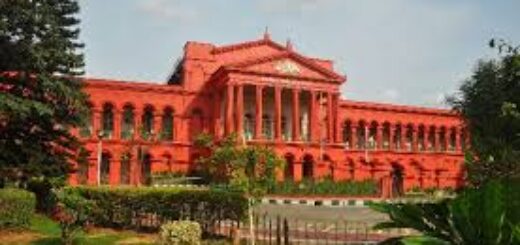Media, especially those in important roles, need to be very careful and responsible: The Supreme Court dismisses the defamation case against the editorial director of TOI.

The Supreme Court dismissed the defamation case against Jaideep Bose, stating that media professionals, especially those in important roles like authors and editors, need to be very careful and responsible before sharing any statements, news, or opinions. The Court overturned the Karnataka High Court’s decision that had rejected the request to dismiss the defamation case against Jaideep Bose, the former Editorial Director of Bennett Coleman and Co. Ltd. Justices JB Pardiwala and R Mahadevan emphasized that the right to free speech under Article 19(1)(a) of the Indian Constitution is crucial. However, they also stressed the importance of caution and responsibility for media workers, as the media has a powerful role in shaping public opinion and can quickly influence how people think and feel.
Senior Advocate Arundhati Katju represented the Appellant, while AOR Pai Amit represented the Respondents. Bid and Hammer Auctioneers Private Limited had filed a complaint against 14 individuals, including directors, editors, and journalists from Bennett Coleman & Co. Ltd. They claimed that articles in Bangalore Mirror, Mumbai Mirror, The Times of India, and The Economic Times contained false information about the authenticity of certain paintings for auction. The Trial Court acknowledged the complaint and summoned the accused. The Appellant argued that the complaint lacked specific allegations against him and did not prove his involvement in publishing the alleged defamatory articles, asserting that under the Press and Registration of Books Act, 1867, the primary responsibility lay with the named ‘editor’ in the publication.
The Supreme Court noted that the Magistrate failed to conduct an inquiry under Section 202 of the Cr.P.C. before issuing summons, even though the Appellant lived outside the jurisdiction. The Court pointed out that the complaint was based on the complainant’s own assessment of reputational harm, lacking any third-party evidence. It stated that the articles mainly included expert opinions and did not directly accuse the complainant. The Court highlighted that for liability under Section 499 of the IPC, there must be clear intent or knowledge that a statement would damage someone’s reputation, which was not proven here. The Bench also mentioned that the Act places greater responsibility on editors. It stated, “Section 5 of the Act requires every newspaper or periodical to list the editor’s and owner’s names. Section 7 establishes a rebuttable presumption that the editor named in the publication is responsible in any civil or criminal case related to it. Since an ‘editor’ is defined as the person who decides what content is published, this presumption implies that the editor controlled the selection of the published material.”
- The Court explained that just because the Act does not specifically mention roles like Editorial Director or require their names to be published, it does not mean these individuals cannot be held responsible for defamatory content. The main difference is that, unlike editors, there is no automatic assumption of liability for editorial directors. As a result, the Court decided to allow the appeals and cancel the High Court’s order and the criminal complaint against the appellants.
The Court noted that a single article or report can reach millions, influencing their views and potentially harming the reputations of those involved, with lasting effects. This underscores the importance of accuracy and fairness in media reporting, especially regarding issues that could affect the integrity of people or organizations. Therefore, news articles should be published in the public interest and with good intentions. The Supreme Court approved the Appeal.
Cause Title: Jaideep Bose v. M/S. Bid And Hammer Auctioneers Private Limited (Neutral Citation: 2025 INSC 241)
Appearance:
Appellant: Senior Advocate Arundhati Katju; Advocates Aishwarya Kaushiq, Prashant M.S., Rohit Agarwal and Lokesh Aidasani; AOR Ravi Bharuka and Yoginder Handoo
Respondent: AOR Pai Amit; Advocates Pankhuri Bhardwaj, Karishma Naghnoor, Nikhil Pahwa, Kushal Dube, Tathagata Dutta and Abhiyudaya Vats








